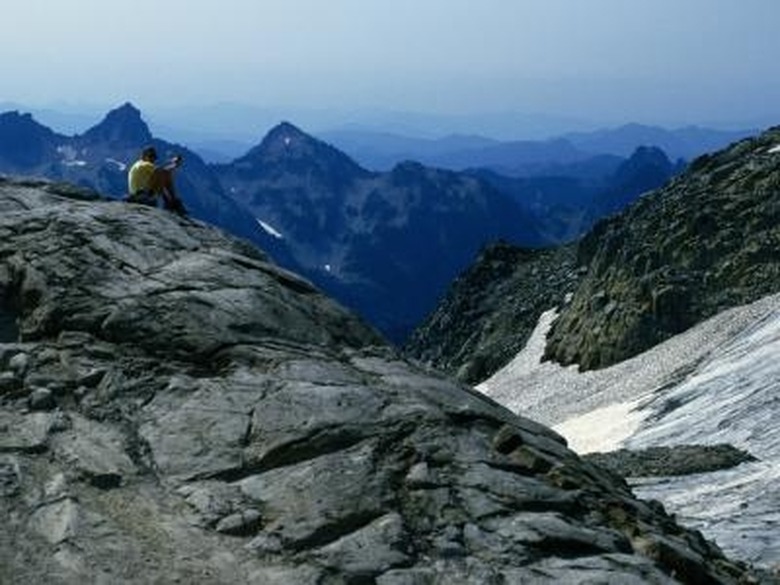Facts About The Rock Cycle
The rock cycle describes the process by which changes occur in the three types of rocks. It was developed by 18th-century Scottish farmer and naturalist James Hutton, according to Visionlearning.com.
Changes
Changes
The rock cycle describes how the three major types of rock–metamorphic, igneous and sedimentary–can change into one another through various geologic processes, according to Learner.org. This occurs through such happenings as cooling, erosion, weathering and melting.
Metamorphic rock
Metamorphic rock
Metamorphic rock can become igneous rock by melting into magma and then cooling, according to Learner.org. It can become sedimentary rock by eroding into sediment and then compacting and cementing into its new form.
Sedimentary rock
Sedimentary rock
Sedimentary rock can become metamorphic rock through heat and pressure, according to Learner.org.
Igneous rock
Igneous rock
Igneous rock can become sedimentary rock by eroding into sediment and then compacting and cementing, according to Learner.org.
James Hutton
James Hutton
Often called the founder of modern geology, James Hutton developed the rock cycle as part of his far-reaching ideas on the planet's formation and change, according to his biography from the American Museum of Natural History.
Cite This Article
MLA
Howard, Alex. "Facts About The Rock Cycle" sciencing.com, https://www.sciencing.com/rock-cycle-5732225/. 24 April 2017.
APA
Howard, Alex. (2017, April 24). Facts About The Rock Cycle. sciencing.com. Retrieved from https://www.sciencing.com/rock-cycle-5732225/
Chicago
Howard, Alex. Facts About The Rock Cycle last modified March 24, 2022. https://www.sciencing.com/rock-cycle-5732225/
